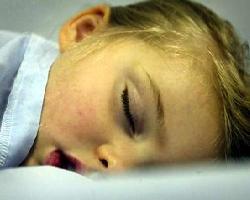The latest research adds to a growing body of evidence that links a lack of adequate sleep to weight gain in both adults and children.
Of the children who slept 10-12 hours each night at age eight, around 12% were obese by 11, compared to 22% of those who slept less than nine hours. The Michigan University study appears in this month’s edition of Pediatrics.
Dr Julia Lumeng looked at 785 children from 10 US cities and analysed their sleep patterns, weight and height. She said it was unclear why the results were so stark, but speculated it could be because tired children are less likely to go out and play. Their study took into account the child’s original BMI, a calculation based on height and weight, and controlled their experiment accordingly. But they did not look at parents’ weight and behaviour, which may also have an impact on the child.
Eating sweets
However the study does tally with several others, some of which have found that hormonal changes brought on by a lack of sleep can lead to an increased appetite. Bristol University research found that people who habitually slept just five hours each night had 15% more ghrelin, a hormone which increases feelings of hunger, than those who slept for eight hours. A further study found those who slept little were more likely to eat calorie-rich sweet and starchy food during the day. It has even been suggested that the link may hark back to prehistoric times, when humans stored up on fat during the summer months when food was plentiful and they slept less as a result of the shorter nights.
“We are just starting to work out the mechanisms: hormones play a role, but a lack of physical activity, which tires you out, could well be a factor too,” said Dr Sharhad Taheri, who has studied the relationship between sleep and obesity closely.
“Parents need to realise the importance of sleep. Taking televisions and gadgets out of bedrooms could be a really good start.”
For more information, visit http://news.bbc.co.uk/




